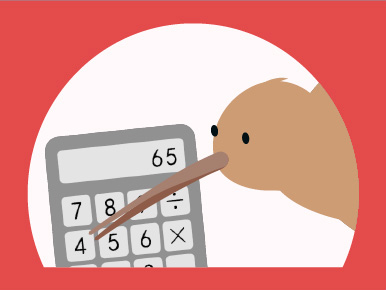Have you ever daydreamed about what your retirement years might look like?
Retirement means different things to different people, but whatever your ideal lifestyle looks like, one thing is certain: achieving it requires a fair share of planning and foresight. So, here’s a quick guide to get you started.
What are your goals?
It all starts with knowing your goals. Take some time to envision what retirement means to you. Is it about quiet mornings on the beach, travelling around the world, or simply having the time to enjoy your long-neglected hobbies?
Write down the details – like the places you’d like to visit, or the activities you have in mind. Understanding your objective can make the planning phase more anchored in reality. Use this vision as a compass.
How much do you need to save?
Budgeting for something that might be two or three decades away from happening is not an easy exercise. Many people underestimate their future cost of living and how much they need to save to cover it.
So, the question is: How much will you spend, and therefore how much do you need to save?
There are at least two ways to approach this question. You can either:
- Calculate a realistic budget: This involves listing your future fixed and variable expenses. Fixed costs can include things like mortgage or rent payments, if applicable, utilities, and other non-discretionary costs. Variable expenses include groceries, dining out, and leisure activities. Make sure you also add a category for ‘miscellaneous’ to cover expenses that aren’t regular but are likely to occur. Plus, factor in the impact of inflation, which can erode your purchasing power over time.
- Start from the replacement income you may need: Another way could be to think about how much of your current income you’d need to replace to achieve your desired lifestyle. A common rule of thumb is that you’ll need to replace between 70% and 100% of your pre-retirement income to live comfortably. This percentage can vary based on factors like debt, lifestyle aspirations, and other income sources you might have, like part-time work.
Where will that money come from?
According to repeated findings by Massey University’s NZ Fin-Ed Centre, NZ Super alone is unlikely to be enough, so we all need to find ways and tools to complement it.
KiwiSaver is one of these tools, used by over 3 million people in New Zealand. And for good reason. Not only does it offer employer contributions of at least 3% (if you’re employed and aged over 18), but if you live in NZ and are aged 18-64, the Government also chips in an annual Government contribution of up to $521.43.
So, how can you make sure your KiwiSaver plan is working for you? By being proactive. Use online KiwiSaver calculators to get an estimate of how much you’re on track to save. If that’s unlikely to replace 70-100% of your pre-retirement income, then you can still make adjustments.
Downsize or not?
The answer is not as straightforward as it may seem. Owning your home gives you the flexibility to downsize to a smaller home or move to a more affordable location, freeing up considerable funds. But if you’re attached to your family home, that decision may not come lightly.
If retirement is still some way off, and depending on your circumstances, consider finding other sources of future income. This way, you may not need to move out of your house, if you don’t want to.
Include your spouse or partner
If you’re in a relationship, both you and your spouse or partner may have individual and shared aspirations for the retirement stage of life. So, make sure you talk about it. Effective communication is crucial here to align your financial strategies.
For example, if one of you dreams of extensive travel while the other would be content with a simple home-based life, a bit of compromise will be needed to meet both sets of goals.
Review and adjust
Remember, planning for the future is not a "set it and forget it" endeavour. Regular reviews – at least annually – will help you adjust your plan in light of changes in and around your life. The key thing is to keep your retirement plan flexible.
Like to talk?
If you have any KiwiSaver-related questions, please don’t hesitate to contact us. You can call us on 0800 800 400, start a Live Chat or fill in this form to get in touch.
Disclaimer: Please note that the content provided in this article is intended as an overview and as general information only. While care is taken to ensure accuracy and reliability, the information provided is subject to continuous change and may not reflect current developments or address your situation. Before making any decisions based on the information provided in this article, please use your discretion and seek independent guidance.












